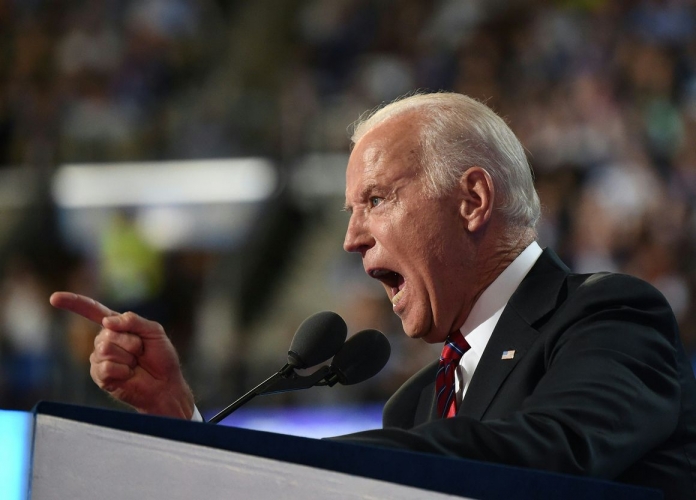
Megaphone diplomacy: What Washington is up to
A new era in the information struggle between the US and Russia has begun. Too bad, though, that the reason for this was the escalation of the conflict in Ukraine.
During previous information clashes, the US had to "fight with its hands tied." If Kremlin never minded the outright misinformation, Washington could not afford the luxury, Georgia in 2008 and Crimea in 2014 being striking examples.
However, amid the escalation of the Ukrainian conflict, Joe Biden's administration seems to have changed its information warfare technique.
Over the past month, the headlines of Western media have been flooded with data generously provided by intelligence agencies. “Russia establishes a puppet government in Ukraine”, “Kremlin will try to fabricate an attack by Kyiv”, “Russian army is 70% ready for an invasion.”
Apparently, the White House and its allies have taken a position of unprecedented publicity. American analysts have already called it "Biden's megaphone strategy."
Exposing Russian conspiracies seems to be an effective response. Yet, it carries certain risks. After all, the loudness of Washington's statements does not guarantee their inaccuracy. A lot is at stake.
The Head of the Permanent Delegation to the NATO Parliamentary Assembly, Yegor Chernev, believes:
"The US wants to make Putin stop hybrid war games and make the final choice: either to launch a large-scale invasion, or retreat. At the same time, Washington and London are taking steps to make a possible invasion an economic and military disaster for Russia for Putin's choice to be clearer. "
Until recently, the success of the "megaphone strategy" included only the unity of the Western allies. However, on Tuesday the situation changed dramatically.
On February 15, Russian media reported that troops from the southern and western districts bordering Ukraine were returning to their permanent locations "after the exercise." The information was later confirmed by the Russian Ministry of Defence.
"The withdrawal of troops has nothing to do with Western hysteria," said Kremlin chief diplomat Sergei Lavrov.
Another Russian Foreign Ministry representative, Maria Zakharova, declared February 15 "a day of failure of Western war propaganda." Moscow had defeated the enemy without a single shot, she said.
However, there are no official data on the withdrawal of Russian troops from Ukrainian and Western intelligence. Without it, it is, unfortunately, too early to talk about the effectiveness of Washington's "megaphone diplomacy".
Ukrainian Foreign Minister Dmytro Kuleba also commented on the situation, "Various statements are constantly being made by Russia, so we already have a rule: we believe when we see."
US President Joe Biden and NATO Secretary General Jens Stoltenberg share this opinion. The latter has even said that Russia seems to be continuing its military build-up in the region.
